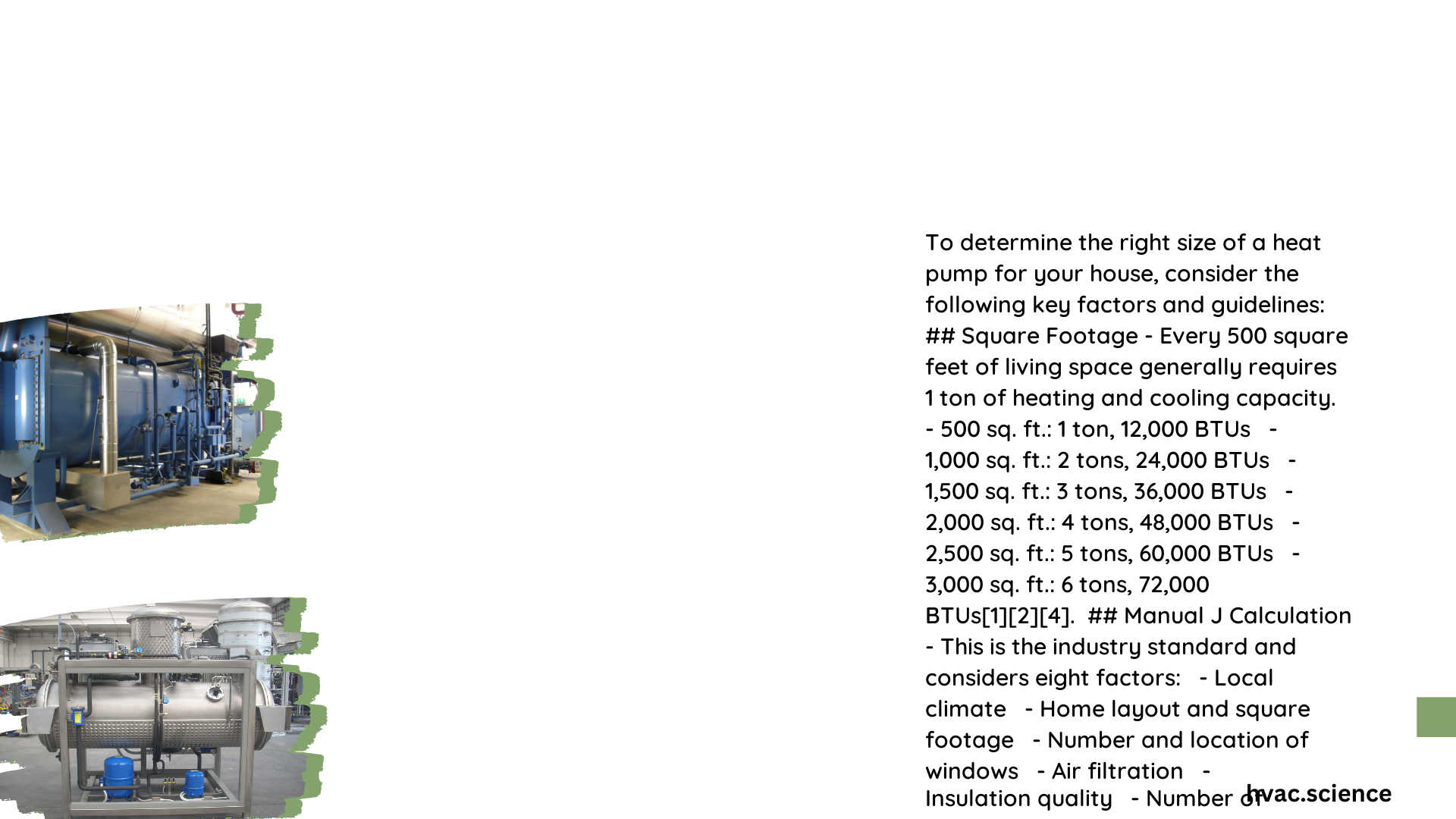Determining the right heat pump size is crucial for optimal home comfort and energy efficiency. Homeowners often struggle with selecting the correct heat pump capacity, which directly impacts performance, energy consumption, and long-term costs. The size of a heat pump depends on multiple factors including home square footage, local climate, insulation quality, window configuration, and specific household characteristics. This comprehensive guide will walk you through the precise methods to calculate the perfect heat pump size for your unique home environment.
What Factors Determine Heat Pump Size?
How Do Home Dimensions Impact Heat Pump Selection?
Home square footage serves as the primary baseline for heat pump sizing. However, it’s not the only consideration. Here’s a detailed breakdown:
| Home Size | Typical Heat Pump Capacity | BTU Range |
|---|---|---|
| 1,000-1,500 sq ft | 2-3 tons | 24,000-36,000 BTUs |
| 1,500-2,000 sq ft | 3-4 tons | 36,000-48,000 BTUs |
| 2,000-2,500 sq ft | 4-5 tons | 48,000-60,000 BTUs |
What Role Does Climate Play in Heat Pump Sizing?
Climate significantly influences heat pump requirements:
- Cold Regions: Require 20-25% larger capacity
- Moderate Climates: Standard sizing recommendations apply
- Warm Regions: May need smaller, more efficient units
How Do Insulation and Home Construction Affect Size?
Insulation quality dramatically impacts heat pump sizing:
- Excellent Insulation: Reduce BTU requirements by 10-15%
- Average Insulation: Standard BTU calculations apply
- Poor Insulation: Increase BTU requirements by 20-30%
What Calculation Methods Exist for Accurate Sizing?
Manual J Calculation Method
The most precise approach involves professional assessment using Manual J calculation, which considers:
- Total square footage
- Ceiling height
- Window and door configurations
- Insulation type and quality
- Local climate zone
- Home orientation
- Number of occupants
Basic BTU Estimation Formula
A simplified calculation method:
– Multiply square footage by 20-25 BTUs
– (1,500 \text{ sq ft} \times 25 \text{ BTUs} = 37,500 \text{ BTUs})
Why Professional Assessment Matters?
While DIY calculations provide rough estimates, professional HVAC technicians offer:
- Precise measurements
- Advanced diagnostic tools
- Comprehensive home energy assessment
- Customized recommendations
What Happens with Incorrectly Sized Heat Pumps?
Undersized Heat Pumps
- Constant running
- Higher energy bills
- Inadequate temperature control
- Increased wear and tear
Oversized Heat Pumps
- Short cycling
- Inefficient operation
- Uneven temperature distribution
- Higher upfront and operational costs
Practical Recommendations for Homeowners
- Measure your home’s exact square footage
- Assess current insulation quality
- Consider local climate conditions
- Consult multiple HVAC professionals
- Request detailed Manual J calculations
- Compare multiple quotes and recommendations
Final Considerations

Selecting the right heat pump involves balancing multiple technical and environmental factors. While general guidelines provide a starting point, professional assessment remains the most reliable method for determining your specific heat pump size.
